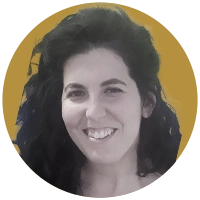The Long Road to Recovery After Surviving Hamas
An initiative supporting Israel’s wounded-in-action soldiers, Belev Echad, helps them rehabilitate and eases their transition back into mainstream society.

When Neta David, 21, attended the Nova music festival on October 7, she had no idea that she would need to utilize her experience as a border police commander in order to survive the unexpected horrors awaiting her and hundreds of other partygoers.
“I went with my two best friends Raz and Kim,” Neta recalled in an interview with the Sun. “We had been looking forward to this dance party for a long time.”
“As a commander of 30 border police in Jerusalem, I’ve seen my share of terror attacks and injuries but never to the scale of the music festival,” she said.
A fellow border guard and Neta’s best friend, Raz Mizrahi, and another friend, Kim Durkarker, were killed when Hamas terrorists threw hand grenades into the bomb shelter in which they and 40 others were taking cover. Neta had left the bomb shelter to get some fresh air and had hitched a ride with a passing vehicle.
“Suddenly, I looked behind us as we were driving away, and less than 150 meters away, was a van filled with Hamas terrorists who sprayed us with bullets,” she said. “The windows exploded. Glass rained down on me, and Sharon, the driver, took a bullet in the arm. The car was destroyed, but he drove like a madman until the car sputtered and died. We all dove out of the car and sprinted in a zigzag, fleeing a hailstorm of bullets until we found cover.”
Neta said that while hiding in the olive groves with Sharon and other partygoers, some wounded critically, she was always thinking ahead. “I took care of the wounded including the driver, Sharon, and others, and I was always planning what direction to flee next if the terrorists approached us.”
Meanwhile, Neta messaged her Border Police colleagues with her location, begging them to come find her and the others. Israel Border Police eventually spirited the partygoers to safety.
It took several days for Neta to discover the fate of her best friends. She said she couldn’t sit around, waiting at home to find out what happened. “I got up the next morning and went to serve my country in my uniform.”
“Look, it’s simple. People should have the right to go to a party and celebrate all night along and come out alive,” Neta said. “I’m the only one of my three friends to survive the Hamas massacre.”
“Raz and Kim are in a better place now. But I have friends who were seriously wounded. Two are in critical condition. One lost an eye, another a leg. Life will never be the same again for any of us,” she said.
Reaching out to support Neta David and helping hundreds of soldiers wounded in the ensuing battles with Hamas is Belev Echad, a nonprofit headquartered at New York. An initiative supporting Israel’s wounded-in-action soldiers, Belev Echad, helps them rehabilitate and eases their transition back into mainstream society and the workforce.
“There is a long road to recovery ahead,” a co-director of programs in Israel, Raz Budani, said. “Right now there’s an endless stream of wounded soldiers who need our help.”
Due to immense hospital overflow in Israel, Belev Echad House at Kiryat Ono, where the organization’s regular programs take place, has been converted into a rehabilitation center for wounded soldiers.
“When soldiers are wounded, most have no idea what to do during the recovery process. They don’t know their rights, what needs to get done bureaucratically, who to turn to for physical therapy and psychological help. Belev Echad provides all that information, guidance, and more,” Mr. Budani, himself a former IDF soldier who was wounded in Operation Cast Lead, and then later again in a terror attack, said.
“The physical injuries are very difficult but it’s the trauma that’s the most difficult to get over,” he told the Sun. “The soldiers who battled the terrorists at the kibbutzim on October 7 saw the dark side of our history; the images of horror go deep.”
In a tragic twist, one of Belev Echad’s success stories was Raz Mizrahi, Neta’s best friend who perished in the bomb shelter. In May 2021, at the height of the Guardian of the Walls military operation, Raz was deployed to east Jerusalem, where tensions were high.
During guard duty, a car plowed directly into six soldiers and police officers including Mizrahi, who was pinned under the car. Mizrahi then spent weeks in the hospital followed by four months in intensive rehab, with Belev Echad at her side during the process.
“Raz was a true Jewish heroine,” Shevy Vigler, who together with her husband, Rabbi Uriel Vigler, founded Belev Echad, says.
“From a talented athlete who could run 10 miles without losing her breath, Raz needed to learn how to walk again. But she didn’t stop there. She summoned every ounce of willpower, and completed an officer’s training course, becoming a unit commander.”
Raz returned to volunteer at Belev Echad and served as the operations and well-being coordinator at the organization.
“Raz wanted to live her life in peace and love, without hate and evil,” Neta concluded. “I hope the world will understand that the hell we encountered on October 7 has no place in our world.”

